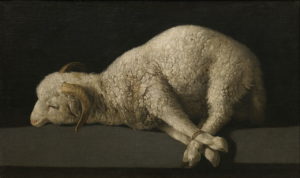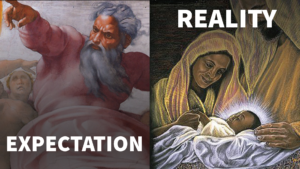So I’m 33 weeks pregnant now, and this pregnancy thing is very weird. I’ve got a human body living inside of my body. And by now, I can feel and see her move and it’s sweet and all, but it’s also kind of creepy. Like the movie Alien, from way back in the day. They had this one monster that has a mouth come out of a mouth, and I remember as a kid I used to stick my hand under my shirt and imitate the movie and creep people out. And pregnancy is kind of like that! Just kidding — it’s much sweeter obviously. But she’s in there and she lets me know.
Like the other day: I made myself a bowl of oatmeal, sat down on my couch, and was eating like this, and all of sudden, she gave this huge kick to the bowl! I picked up the bowl with my hand and realized it was really hot. She was like, “OW Umma! That’s hot!” I felt so bad.
Her existence, her presence within me, I’ll be honest, sometimes I forget, I try to squeeze through between a table and chair like a used to, and hit my tummy, but she lets me know. Punching me, kicking me, nudging, I’m here Umma! Even hiccuping, and I can feel her rhythmic hiccuping in my belly. She is there.
We’re talking about Embodied Faith as our sermon series this fall. And rooted in this concept of Embodied Faith is the central theological notion of the Incarnation.
The Christian faith believes that God became incarnate: God came to earth, in flesh and blood in the form of a human being — namely, as Jesus.
John 1:14 says:
“The Word became flesh and made his dwelling among us. We have seen his glory, the glory of the One and Only, who came from the Father, full of grace and truth.”
God decided to show up in a body! To say, hey! I’m here! This is me! See? The visible reality of an invisible God.
Incarnation of Jesus: God Embodied
Starting out much like my soon-to-be-born daughter — kicking in Mary’s womb, then out into this world as a boy, as a man, as a human being. The fact that God decided to reveal Godself in and through the human form of Jesus, what does that mean for us? What implications does that have? What does that say about who God is? And how does that impact what we think about God? How does it matter to us?
It matters and it matters greatly, because, it means, matter matters. God doesn’t just exist as a far and distant being, watching little earthlings play house. God decided to enter into it, become a part of it. Because earth matters to God. Human beings matter to God.
I think the fact that God became human is such a big deal. And we don’t talk about it enough in churches sometimes because we’re busy elevating Jesus as a divine, and he is, the creeds say, fully divine, but it also says fully human and fully divine. But I feel like we’re afraid of talking about Jesus’ humanity. Christians are so busy solidifying what theologians and scholars call a “high Christology”, that sometimes we’ve made Jesus unrelatable, God untouchable, and therefore us removed and untouched by the holy divine. Actually, the stories of Jesus straight from the gospels describe a Jesus that’s much more human, a special human for sure, but a human. So let me start us off by talking about the humanity of Jesus, focusing on his biblical title: Son of Man. And then we’ll touch on what implications that has for matter and spirit, and what that means for each of us.
The Humanity of Jesus: Son of Man
One of the main ways we know who Jesus is and all that he represented is through the Gospels — the stories and eyewitness events of interactions with Jesus on earth. And in the Gospels, there are many cues to who Jesus really is. Jesus would ask, “who do you say I am?” There are confessions of disciples, proclaiming who he is. And Pilate asked Jesus on a trial, “Are you the king of Jews?” So who is Jesus, according to the gospels?
I want to bring to our attention to this title that Jesus used over and over again to describe himself: “Son of Man”. Son of Man is the primary title Jesus used for himself. It appears some 80 times in the Gospels. It is used from the mouth of Jesus more than any other titles like “Son of God” or “Messiah” or “The Lord”, which others used to describe him. But to Jesus, Son of Man was important to him. So what does it mean?
It’s interesting how tradition changes meanings of words over time, and carry one meaning for one generation and a whole new meaning for another. Like our own slangs or new trending terms. Like POC: person of color is an acceptable and even preferable term nowadays, whereas back in the day a “colored person” was considered a 2nd class citizen — now a reclaimed word. And when we read the Bible, we have to be aware that this actually happens a LOT because language changes over time. I know I talk about this, probably every time I preach, but words are important! And oftentimes, it does not mean what we think it means.
It’s uncertain what “Son of Man” meant in Jesus’ time. It’s been used here and there in the Old Testament but not with clarity. The important thing is how it was used by Jesus.
In Mark 14, a high priest asks him, “Are you the Christ, the Son of the Blessed One?”
Jesus replies, “I am, and you will see the Son of Man sitting at the right hand of the Mighty One and coming on the clouds of heaven.” which was a throwback to an Old Testament text,
Daniel 7:13 that says, “As I watched in the night visions, I saw one like a son of man coming with the clouds of heaven.”
The Aramaic phrase used here, bar enash, simply means “human being”. But one important change Jesus does with it was that he added a definite article, The Son of Man. He was saying, the most human one, the ultimate human being! It’s almost as though he coined the term right then and there, like a superhero, coming to terms with their own power, decides, yes, I shall call myself, spidy? No. The human Spider? No no, I’ve got it. The Spider Man!
The Son of Man. The Human One. Jesus was showing us what it meant to be the most human!
A New Testament scholar Daniel Kirk grounds his emphasis on the humanity of Jesus with this, in his book titled, A Man Attested by God: the Human Jesus of the Synoptic Gospels. He says that the self-identified title, “Son of Man” is a cue to us the readers, that Jesus should be first and foremost seen and recognized as an idealized human figure, as exhibited by the gospel accounts. He claims that this is the better way of reading the gospels, not with the modern day assumptions of Jesus as the 2nd person in the trinity, shaped by later interpretations, but to simply take as it presents, Jesus as a human being, one who has obviously been anointed with special powers of miracles and healings, but nevertheless a human. He’s not arguing the divinity of Christ, as many jump to when discussing humanity of Jesus, rather he only suggests to take it as it is first, and the following implications of who is Jesus really, actually, has even a wider deeper meaning when we highlight the full humanity of Jesus.
The genius of Jesus wasn’t that he was so holy, but actually that he was too down to earth, too nitty gritty, all together too human. That was the confusion and the frustration of those who criticized him. They didn’t recognize such a human divine .”Is this not Jesus, the son of Joseph, whose father and mother we know?” (John 6:42) They couldn’t accept such messy savior, that looked too much like us. “He came to that which was his own, but his own did not receive him.” (John 1:11)
But the fact that God became human, God incarnated, God was embodied, meant that now it changed everything about what it is to be human. It meant that now, human and divine were one. United.
Unity of the Matter and Spirit: The Ascending AND Descending
Spirituality, religion, and philosophy all have usually two strands of thinking: “ascending” or “descending”. This is taken from one of my favorite thinkers, Richard Rohr, a Franciscan priest. He talks about how most of our occupation in religion is caught up either in ascending — grasping at the holy lofty things, or descending — focusing on the earthly things, the moment is all that matters. Rarely does it do both. The Buddhist tradition detaches oneself to all earthly attachments and joys, in order to be completely emptied, thereby reaching Nirvana. Even in the Christian tradition, people often get preoccupied with the afterlife only, salvation meaning “a ticket to heaven after death”. But Jesus, Jesus did both, in being completely locked in with his Father God, and anchored and diving in into the world. Richard Rohr says that, “Incarnation refers to the synthesis of matter and spirit.”
The distinction we like to make, the sacred and the secular, Jesus smashed it into one in himself. We keep trying to go up, ascend, and then realize, that God is down here, right here! That’s the meaning of incarnation. Another quote by Rohr, he says:
“The Gospel communicated a most surprising and totally counterintuitive, message: We should and we can trust the pattern of the divine self-emptying into matter. Further, if we would but “imitate God” (Ephesians 5:1) in this regard and say a loving and allowing yes to our embodied selves and this material world, in all its beautiful diversity, we would not need to flee it to find God elsewhere.”
Because when we realize this, we see that God is right here.
In John 1:49-51, “Nathanael confessed, ‘Rabbi, You are the Son of God! You are the King of Israel!’… And Jesus said to him, ‘Most assuredly, I say to you, hereafter you shall see heaven open, and the angels of God ascending and descending upon the Son of man.'” (John 1:49-51)
Again, Jesus materfully is doing a throwback to the Hebrew Scripture in Genesis 28:12, Jacob’s ladder:
“He had a dream in which he saw a stairway resting on the earth, with its top reaching to heaven, and the angels of God were ascending and descending on it.”
Essentially Jesus is calling himself the stairway to heaven, the connector, the uniter.
These are moments when heaven and earth met. The unity of matter and spirit. God incarnate means ascending and descending between the heavens and the earth, and they are one. That’s what it means for God to be embodied.
So what does it mean now that matter and spirit are united? It means you matter.
Result: The Sacredness of YOU
That means God is reclaiming all earthly things as holy things! God is in the business of divinizing, sacramentalizing ordinary things into extraordinary things! Jesus’ resurrection meant that bodies are reclaimed from ordinary death to extraordinary eternal life! And he held simple, man made things like bread and wine, and notice it wasn’t something like dirt or water, existing natural things, but human processed food that was made from the work of hands, dough kneaded by hand and baked with accuracy, and grapes stomped by feet and aged with science precision to make wine, he held bread and wine and made them sacred things. “This is my body,” he says.
That means God is saying, this is mine, human things are mine. That mean our withering bodies that will fade away, are God’s. That means, your social studies, scientific discoveries, technology and artistic creativity are mine. Don’t you know that I have made you holy? That means black and brown bodies are mine and holy, bearing the image of God. That mean sexually exploited bodies are mine. That mean exploited workers and their hands are mine. It means our culture, our ethnicities, our pride, our heritage, our traditions, our mundaneness, our jobs, are all made sacred by the living God who walked the earth, died and resurrected, reclaiming all things.
But it is hard to believe it sometimes, in this broken world. We’re told that we’re not good enough and we doubt and fear our God-given holiness as we are. We think we always need to be something else. Self hatred and rejection of our own bodies is a real struggle. I’ve experienced this as I’ve struggled being Asian. Recently there was a movie called Crazy Rich Asians and it brought things up for people about self rejection. Here’s a Twitter confession that resonated with so many emotionally. Let me read the series of tweets for you. @Kimmythepooh says:
You’re 8 years old.
Your 3rd grade class orders chinese food & your father delivers it. You are so excited to see your pops in school. He’s your hero. But apparently other kids don’t think he’s so cool. They laugh at him and mimic his accent. You don’t want to be Chinese anymore. pic.twitter.com/6vW9DXZK6x— Kimberly Yam (@kimmythepooh) August 18, 2018
You’re 9 years old.
You attend ballet camp. Someone tells you that another girl *hates* you. She thinks your eyes are an “ugly shape.” You don’t have the vocabulary to describe why that’s hurtful. But now, you hate your distinctly Asian face. You don’t want to be Chinese anymore.— Kimberly Yam (@kimmythepooh) August 18, 2018
You’re 16 years old.
It’s Halloween & 2 students come to class dressed as “Asian tourists.” They’ve taped their eyes back, strapped cameras around their necks and chucked up peace signs. You feel uncomfortable. When a teacher asks if you find the costumes offensive, you say no.— Kimberly Yam (@kimmythepooh) August 18, 2018
You don’t want people thinking you’re uptight. You laugh along with everyone else. You don’t want to be Chinese anymore.
— Kimberly Yam (@kimmythepooh) August 18, 2018
You’re 17 years old.
You’re off to college & you meet other Asians. They have pride that you never had. You meet a boy & he wonders why you don’t speak your family’s tongue. Why your favorite food is grilled cheese, not xiao long bao. You say your family doesn’t live that way.— Kimberly Yam (@kimmythepooh) August 18, 2018
But you know you rejected your culture a long time ago. You know you refused to speak Chinese & you remember calling your mother’s food “disgusting.” It’s fucked. It clicks. It’s a race to reclaim everything you’ve hated about yourself. For the 1st time, you want to be Chinese.
— Kimberly Yam (@kimmythepooh) August 18, 2018
You’re 20 years old.
You’ve spent the past several years repatriating yourself. You get your family’s name inked into your skin. That character is there forever. You won’t let anyone make you feel the way you did all those years ago. You love being Chinese.— Kimberly Yam (@kimmythepooh) August 18, 2018
You’re 25 years old.
You see a movie with an all-asian cast at a screening and for some reason you’re crying and you can’t stop. You’ve never seen a cast like this in Hollywood. Everyone is beautiful.
You’re so happy you’re Chinese. #CrazyRichAsians #RepresentationMatters— Kimberly Yam (@kimmythepooh) August 18, 2018
I’ve had my own, you don’t wanna be […] anymore. I don’t wanna be Korean anymore. I don’t want to be Lydia anymore. I wish I was a white man(white aspiration is real). I hate that I was born into this world, to a poor family, in this stupid body that I’m stuck in. I don’t wanna be alive anymore.
I think seeing God as Jesus, as a human being, is like seeing Crazy Rich Asian as an Asian American. Representation matters! Jesus showed up as a vulnerable baby, to a unwed single mom, without a crib.
At the end of the day, the reason why we’re so afraid to really recognize the humanity of Jesus is because that means holiness is too close and I no longer have an excuse or an out. Follow Jesus, What would Jesus do? Well, yeah that’s Jesus. He’s God! And me, I’m just me. Mere human being. “Spirit is willing but my flesh is so weak,” we say. That’s a false dichotomy that’s not from Christian understanding, but as Steve mentioned last week, is a remnant and influence of Greek philosophy; Plato’s division of the soul and body heavily heavily influenced modern ways of thinking, and have even shaped our theology. But that is not what God was doing. God was making our hearts, mind, strength, and all to be in union with him, as seen by exhibit A — Jesus. Here is an example: fully human, fully divine. It’s possible! When we admit this, we have no excuse to be not extraordinary.
Let me end with one of my favorite quotes by Marianne Williamson:
Our deepest fear is not that we are inadequate. Our deepest fear is that we are powerful beyond measure. . . . You are a child of God. Your playing small does not serve the world. There is nothing enlightened about shrinking so that other people won’t feel insecure around you. We are all meant to shine, as children do. We were born to make manifest the glory of God that is within us. It’s not just in some of us; it’s in everyone. And as we let our own light shine, we unconsciously give other people permission to do the same. As we are liberated from our own fear, our presence automatically liberates others.
We were born to make manifest the glory of God that is within us. God is here. God is within us. Do you believe that?
You don’t really ever feel something else truly within you like pregnancy. “Christ in me” is such a metaphor. And then this pregnancy things really brings it to a lived reality of what it means to always be united with something else. That umbilical cord is like the stairway to heaven, connecting me to the baby inside. She didn’t exist before. She came into being in my body. She, the concept of her, an imagination, embodied herself within me. We’re constantly united and in communication. And even then, I forget sometimes. And so even though we know God is with us, I know we forget sometimes. That the incarnate God is in union with us. We don’t believe it, until God nudges or kicks, and we feel a bump, and we’re like, oh yeah, hi God.
Let’s believe it, that God is here. Right here within us. They say it’s good for me to talk to the baby, to get ready for her, to welcome her to this world. Let’s try the same to God within us. I think that’s kind of like prayer.


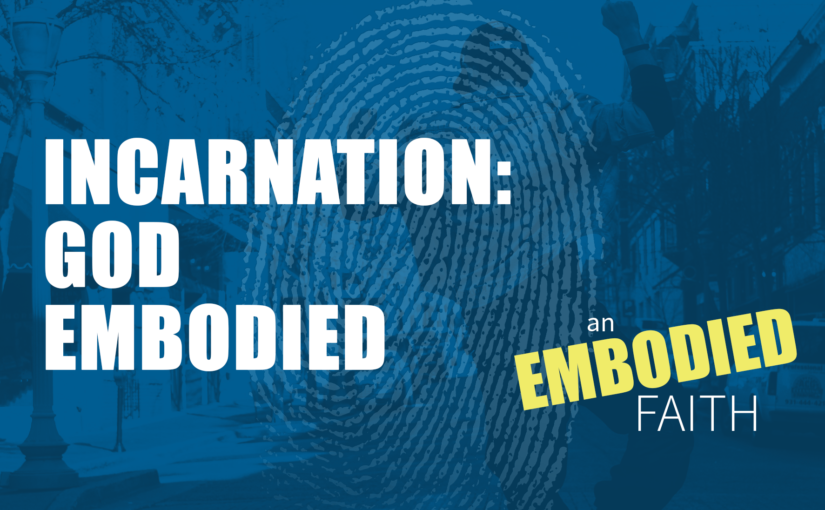
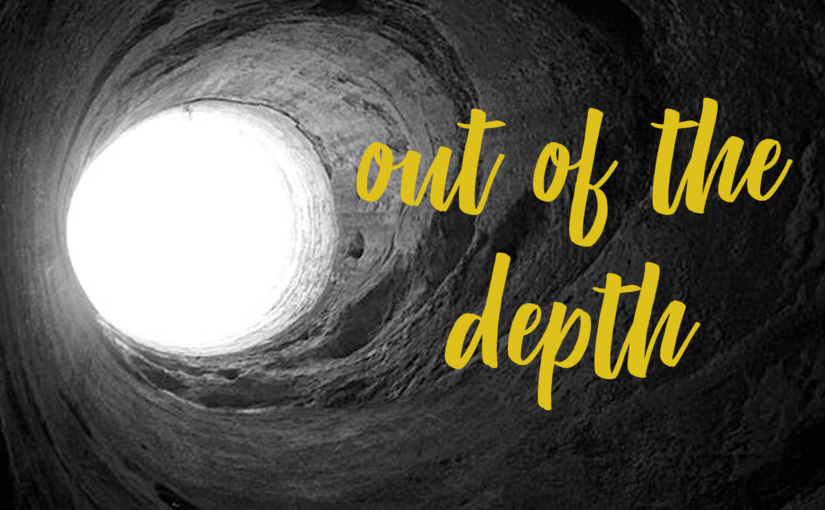
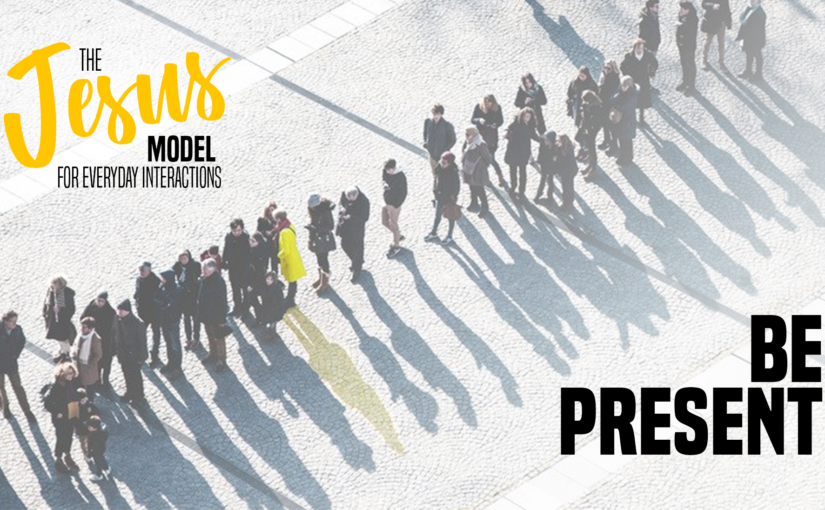

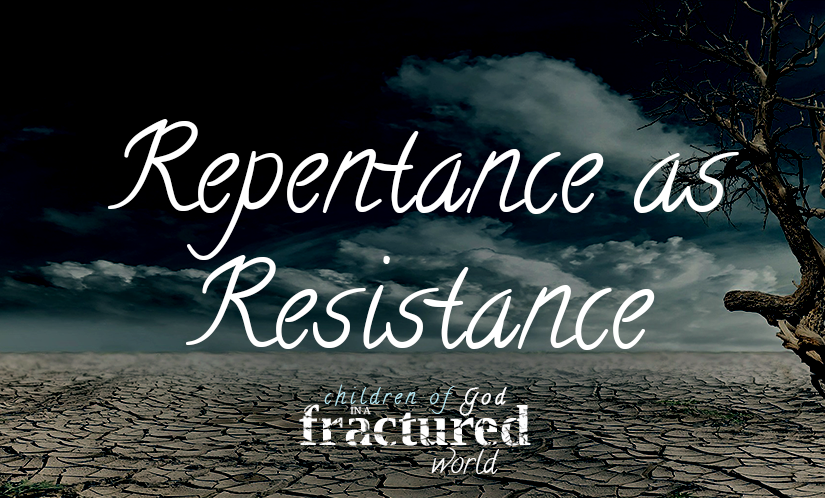
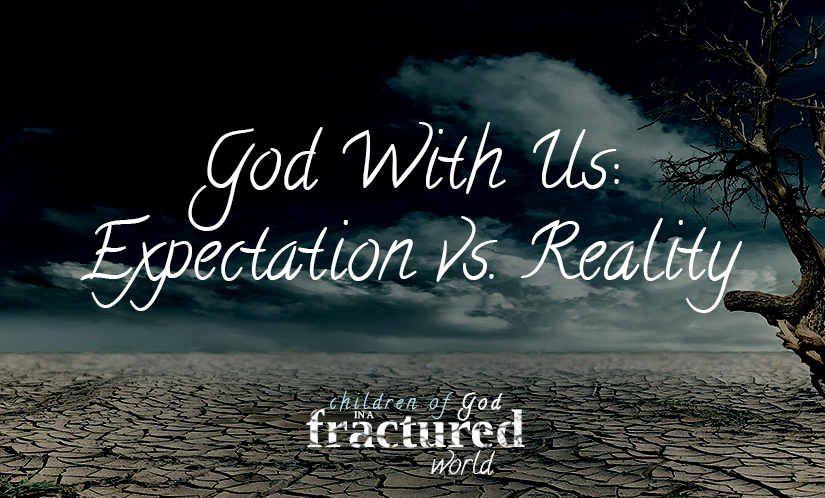
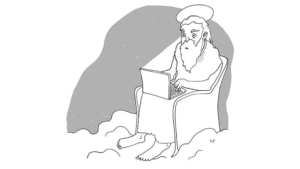 That’s how the New Yorker illustrates God sometimes. The general society and our world has imagined God in a certain way. Or maybe you’ve been around the church a bit and you know that God is the Creator. Our Lord. Our King. Omnipotent all knowing God. Strong. Powerful.
That’s how the New Yorker illustrates God sometimes. The general society and our world has imagined God in a certain way. Or maybe you’ve been around the church a bit and you know that God is the Creator. Our Lord. Our King. Omnipotent all knowing God. Strong. Powerful.